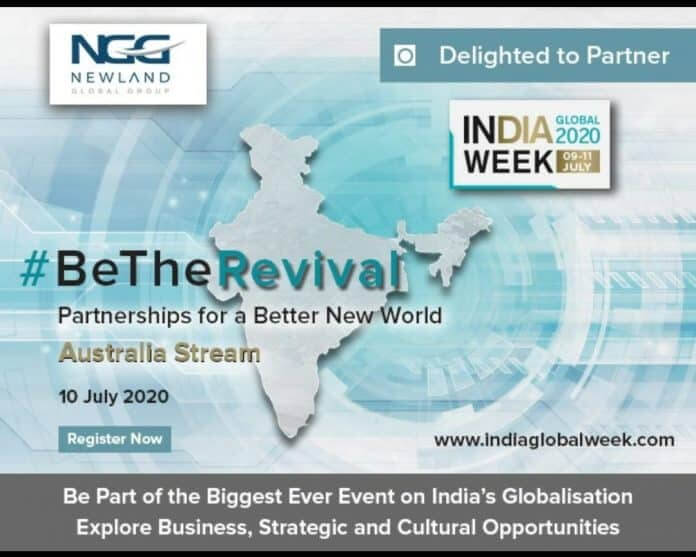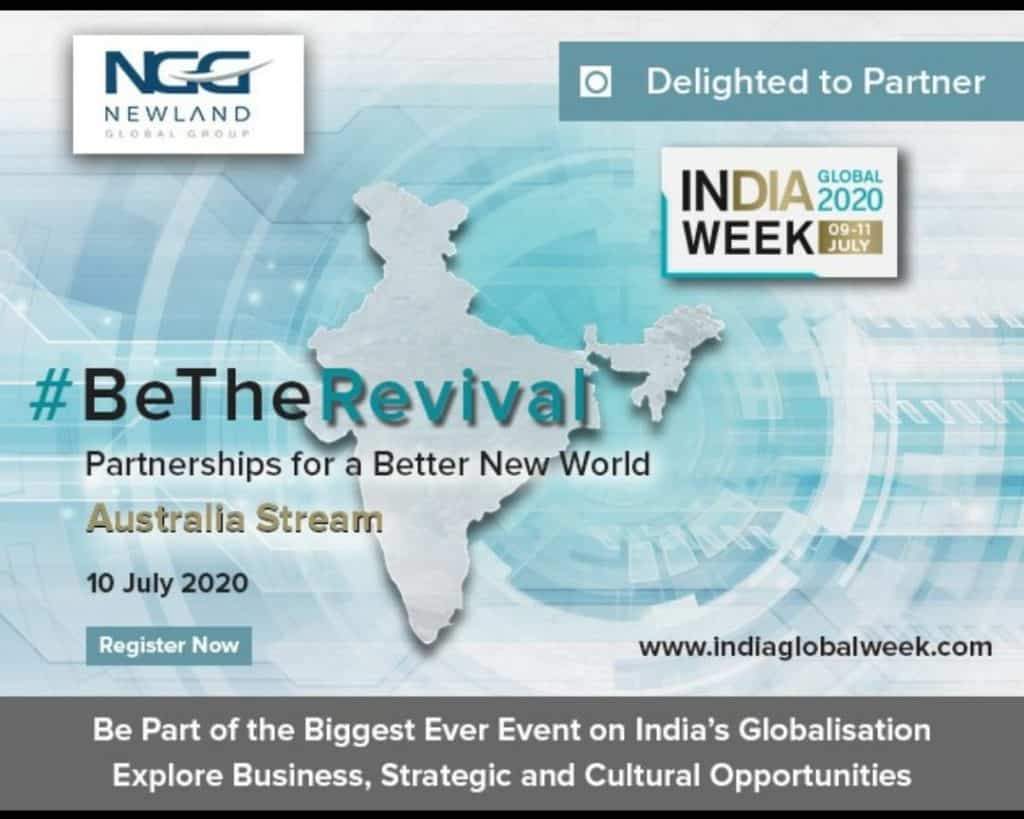
It was the biggest ever international virtual event on India’s globalisation. India Global Week 2020 (IGW2020), themed ‘Be The Revival: India and a Better New World’ concluded on 11 July and surpassed all expectations. Three invigorating days, packed with incisive discussions, inspired positivity and a call for action, to look ahead to a better, brighter future beyond COVID-19.
IGW2020 brought together global thinkers, political, business and spiritual leaders, sporting stars and industry specialists on one platform, organised by leading UK-based media house India Inc.
The historic event was inaugurated by India’s Prime Minister Narendra Modi, who in his address to the global audience, stated that India will play a leading role in the global economic revival, and outlined the new opportunities that India has to offer with its ease of doing business reforms and opportunities in diverse sectors (agriculture, defence, space, MSME to name a few).
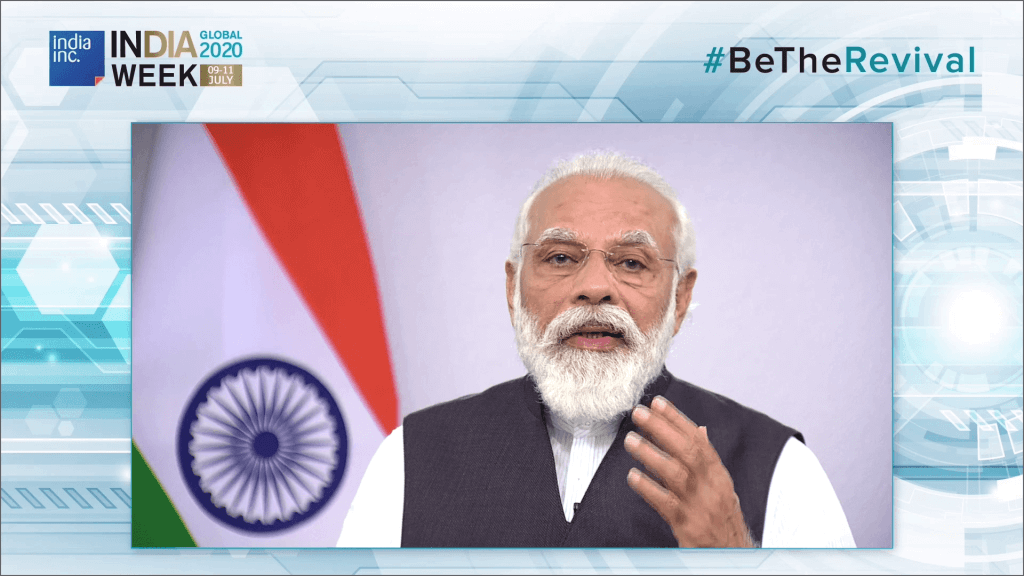
His message was focused on furthering India’s role in creating global good and prosperity – affirming the opportunities in a New India that is reforming, performing and transforming, such as the role played by India’s pharmaceutical industry in providing affordable medicines to the world in these times.
The Australia Stream of IGW2020, which was held on 10 July, was curated, organised and managed by Newland Global Group (NGG), as the In-Country partner. NGG is Australia’s leading corporate advisory firm focused on simplifying and strengthening trade and investment ties between Australia and India. NGG’s aspiration to create a strong knowledge resource on Australia India economic ties, and its focus on enhancing cultural and business understanding of Transforming India, led its management to spearhead the Australia Stream. With +75 exhilarating sessions, +250 engaging speakers, +30,000 participants from 76 countries, IGW2020 was truly a historic global event, a first of its kind.
It was the intent to build on the promise, optimism and ambition of the Australia India ties that led to a fulfilling day of insightful discussions. The Australia Stream included six different sessions covering the strategic and economic imperatives of this bilateral relationship. It started with the introductory session, Strengthening Australia India ties, with India’s High Commissioner to Australia Mr. A Gitesh Sarma who shared his ambitions for this relationship, and suggested how Australia can play an integral role in India’s growth story.
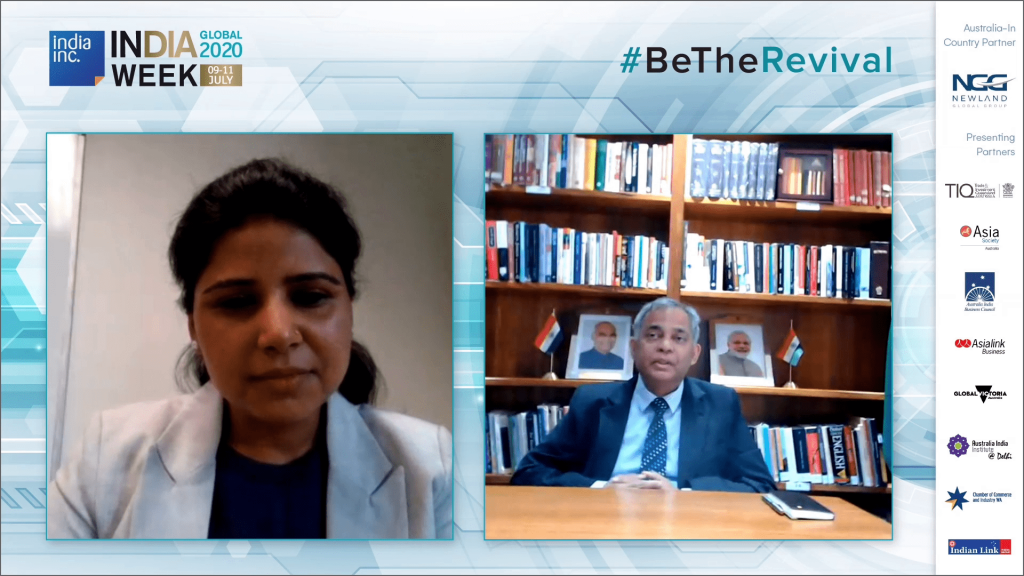
“India’s need for resources, investments and technology can be supplemented by Australia’s strengths,” Mr Sarma said.
He also highlighted the prominent role of the strong 700,000+ Indian diaspora in Australia, which has created an encouraging space for itself through its skill and talent, and has solidified these relations further. The High Commissioner was hopeful that the relations would thrive at all three levels of engagement (government, business and people-to-people).
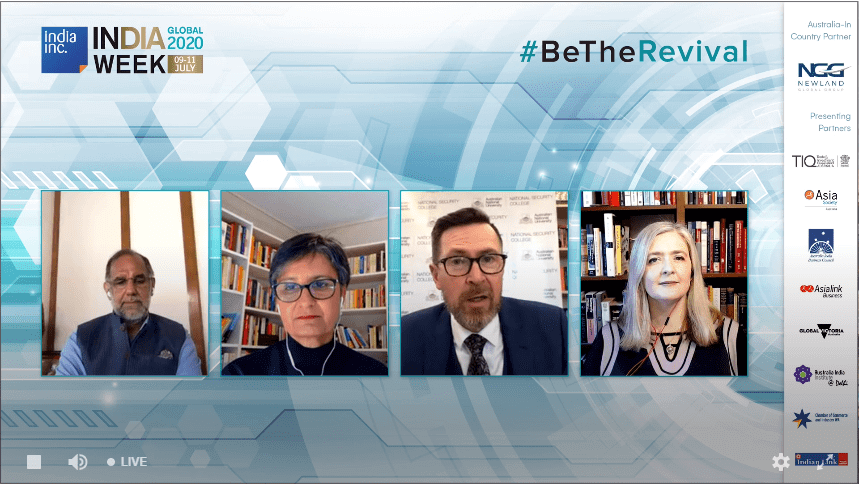
Australia and India are situated in the most dynamic region of the Indo–Pacific that is the centre of economic and strategic gravity today. The session on the Indo-Pacific focused on the promising roadmap laid out in the Comprehensive Strategic Partnership between the two countries. The panel stressed that the egregious behaviour of China throughout this pandemic, economic ties, security alignment, and Islamic terror – are bringing Australia and India closer.
The Mutual Logistics Agreement can enable both India and Australia to provide disaster relief and other support to the island nations in the Pacific. The panel highlighted that the relationship was at an elevated level; governments can be catalysts but the private sector has to take the relationship forward. Mobilising the diaspora community, the scientific community and other groups will be key to building the relationship.
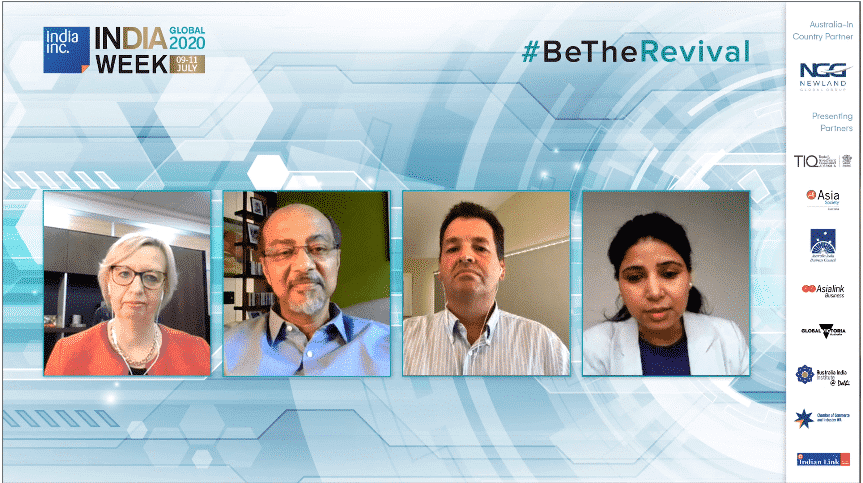
The session on manufacturing centered around why manufacturing matters, and if ‘Designed in Australia, Made in India’ is a mantra to follow. The question asked was, can India’s aspiration for global competitiveness in the manufacturing sector be matched with Australia’s innovation and capabilities in advanced manufacturing?
The speakers were of the opinion that India has been able to build a world-class globally competitive industry especially in pharmaceuticals and automotive, which can be replicated in other sectors. Data infrastructure can be a major area for collaboration, and could bring great minds together from both countries. India is big in production, while Australia is a leader in processing. Both countries could identify synergies in sectors like telemedicine, mining, pharma and biotech, and be part of the shifting supply chains.
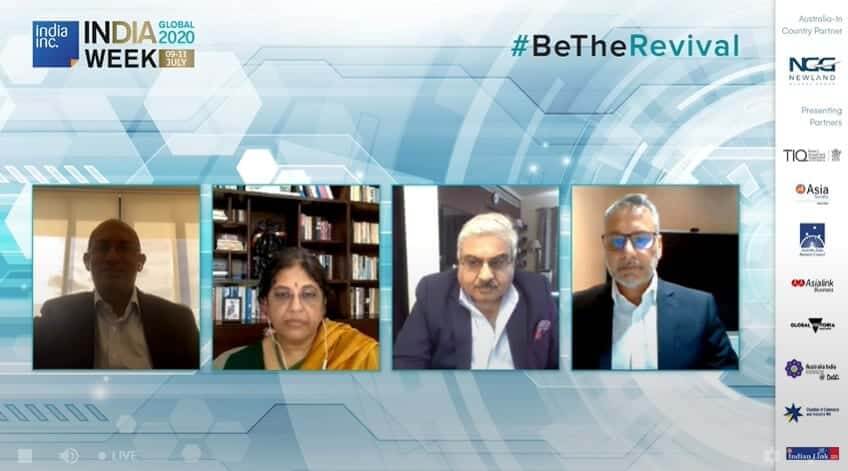
Scale and diversifying market risks are the three factors driving Australia’s engagement with India. India has been placed in the ‘too hard’ basket by corporate Australia due to the general thinness of knowledge on how to get started, asserted Peter Varghese AO, former Australian High Commissioner to India, and author of the highly acclaimed India Economic Strategy to 2035 (IES2035), speaking in the session on bilateral economic strategies. The panel stressed that India has a profusion of talent, its consumer market is of a mind-boggling scale, and any story about India cannot be complete without mentioning its innovation talent, all of which make it a valuable investment destination.
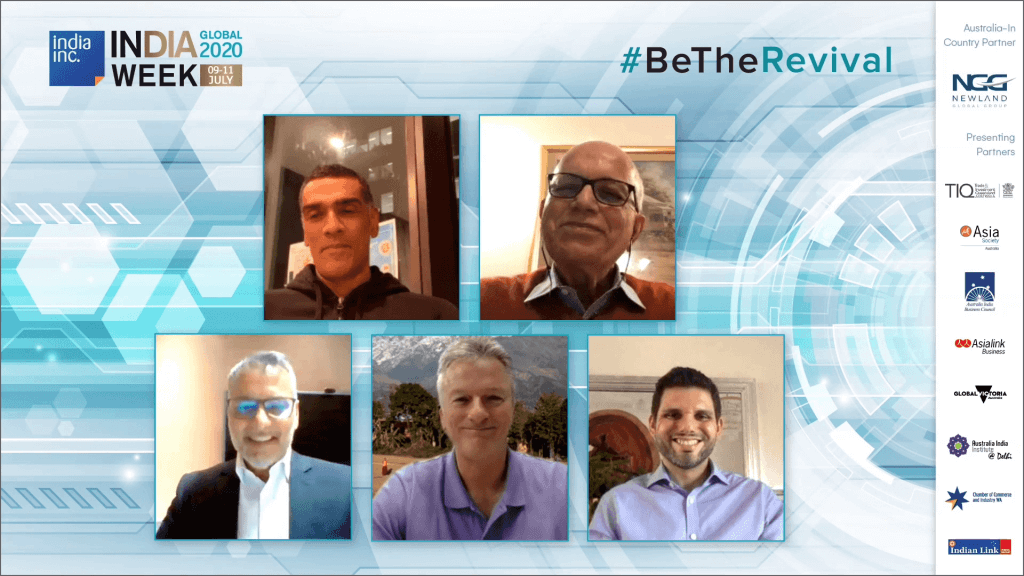
In another engaging session this time on sports diplomacy, former Australian cricket captain Steve Waugh shared his India journey and his upcoming book, Spirit of Cricket based on cricket as a religion in India. (He also stated that the Border-Gavaskar Trophy is equivalent in terms of significance, to the Ashes series.) The question put to the panel was whether sport can be a soft diplomatic asset between Australia and India. The panel stressed that grassroots development is very important for the development of a holistic sports ecosystem. Australia’s innate strengths in areas of sports science and high-performance, conditioning and strength can make it a natural partner for India’s Olympic program preparation.
Critical minerals such as lithium, cobalt and rare earth minerals will dominate new energy ties between both nations. The session on the potential of ‘critical minerals’ engagement focused on the Indian Government’s reforms that have opened up huge opportunities for Australian companies in the exploration and extraction of minerals. As India begins its transition to green technologies, the demand for critical minerals will go up, and Australia can step in to fill this gap. There is also an opportunity for India to partner with Australia to build a sustainable domestic mining industry.
The Australia Stream was also enriched by the warm video message of Senator Simon Birmingham, Minister for Trade, Tourism and Investment, expressing his ambition for the Australia-India relationship, and how both countries could take advantage of the synergies that exist between them.
IGW2020 has truly showcased Australia’s role, strength and potential in the changing global and economic order, and that its ties with India are at the centre of global deliberations today. The global strategic and economic repositioning has exposed other countries to the significance of Australia-India ties driven by intent and action. To this end, the Indian Foreign Minister, Dr S Jaishankar expressed his aspirations for the Australia-India bilateral relationship to a global audience.
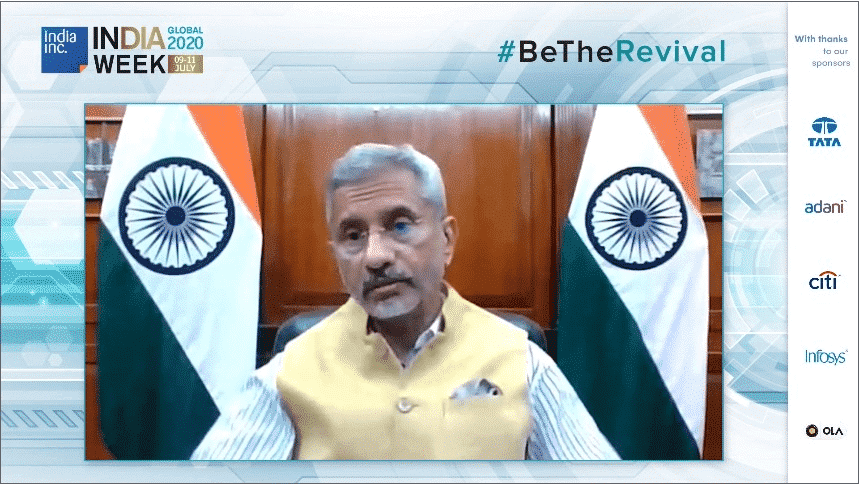
“Australia is a country with considerable weight, considerable influence, with a lot of interests in the region. If the region is to be more secure, more stable, more predictable, then countries like India and Australia need to come together. You should be looking at a much stronger relationship to unfold in the coming days.”
IGW2020 has helped expand the Australia-India ties further, and has echoed PM Modi’s sentiments that Australia is no longer at “the periphery of India’s vision but at the centre of its thoughts.” It will enhance the speed and scope of this relationship further. The fundamental component that matters the most, is constant engagement and sustained momentum.
READ ALSO: Prime Minister Modi’s speech during India Global Week 2020



